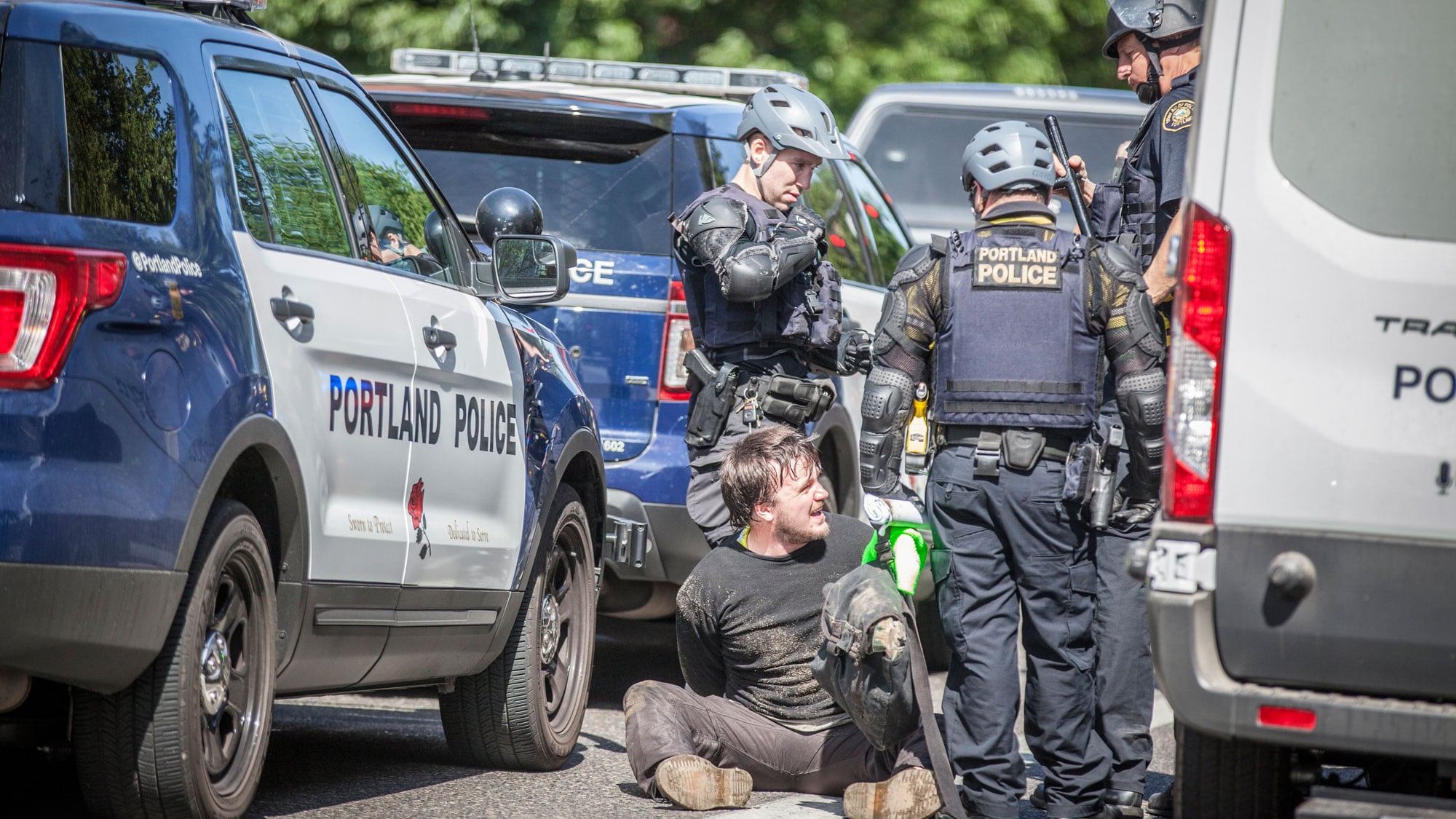In February, Portland City Council voted to withdraw the city's police force from the Joint Terrorism Task Force, a partnership run by the FBI to coordinate various law-enforcement agencies' efforts to fight terrorism and extremists.
The vote at City Hall was 3-2—a narrow decision.
Related: Portland Leaves the Joint Terrorism Task Force Again, Becoming Second U.S. City to Cut Ties
Now Commissioner Jo Ann Hardesty, who championed the withdrawal as a campaign issue, and Mayor Ted Wheeler, who serves as police commissioner, are returning to City Council with the details of what the city's stance toward the JTTF will look like going forward.
In some ways, Portland's involvement with the Task Force will indeed decrease.
When Portland was in the JTTF, the security-clearance requirements created a dynamic where the police working with the JTTF did not have to answer to the chief for their work with the FBI. Now the chief or her deputy will be the required liaison to the JTTF.
Also when Portland was officially in the JTTF, two Portland police officers were assigned to work with the JTTF and could do that work at any time without specific approval from the chief. Now approval is required.
But a key advocate for police reform says the new JTTF policy resolution, which has been filed (and is available here to read it in full), may expand the kind of work the JTTF can undertake in Portland.
The resolution states the police chief can "temporarily assign PPB officers to work with the Portland FBI JTTF to assist in the investigation of any individual suspected cases of terrorism and/or threats to life, including hate crimes, in or having a direct nexus to the City of Portland where there is reasonable suspicion of criminal activity."
Because it includes "threats to life" and "hate crimes," Dan Handelman of the watchdog group Portland Copwatch says the resolution "appears to broaden the mission" of the JTTF from how it was understood when Portland pulled out. That gives police more leeway to temporarily partner with the feds, he warns.
"The community wanted it to be much narrower," he says.
Hardesty says in a statement she's pleased with the deal.
"When communities tell us their fears of being targeted because of their race or immigration status, we have to act," says Hardesty in a statement. "After weeks of negotiation I'm proud to say we've reached a resolution that addresses many of the concerns that prompted the call for withdraw from the task force in the first place."
The final policy ended up being a compromise between the mayor's office and Hardesty's office, in part because Commissioner Amanda Fritz, who voted to withdraw, has insisted on a consensus.
In an April 2 email obtained by WW, she "replied all" on an email from Hardesty's policy director Derek Bradley, including Hardesty herself as well as staff in the mayor's and other council offices, insisting on a resolution that the mayor would support.
"It's important to me that the Mayor supports the Resolution," Fritz emailed. "Please keep us informed as to the response from the Mayor's office."
Since Fritz's vote was decisive on removing Portland from the JTTF, her support would presumably be required again on this second part of the JTTF resolution.
Her chief of staff, Tim Crail, went public with his concerns over the need to attempt consensus at City Hall, in the midst of these negotiations, in a Portland Mercury story last week.
"That's not how City Hall works best. You need to hear all the commissioners' voices and do everything you can to accommodate concerns that others raise," Crail told The Mercury. "Sometimes you can't, and you pass policies with three or four votes. But you certainly try to get to five."
Hardesty didn't comment for that story, but a staffer tweeted afterward that they'd continue to look for three votes, if not five.
We’ll keep counting to 3 if that’s what needs to be done for the people of Portland. That’s where our loyalty is. https://t.co/eVYcqxGdzK
— Matt McNally (@mattmcnallypdx) April 24, 2019

